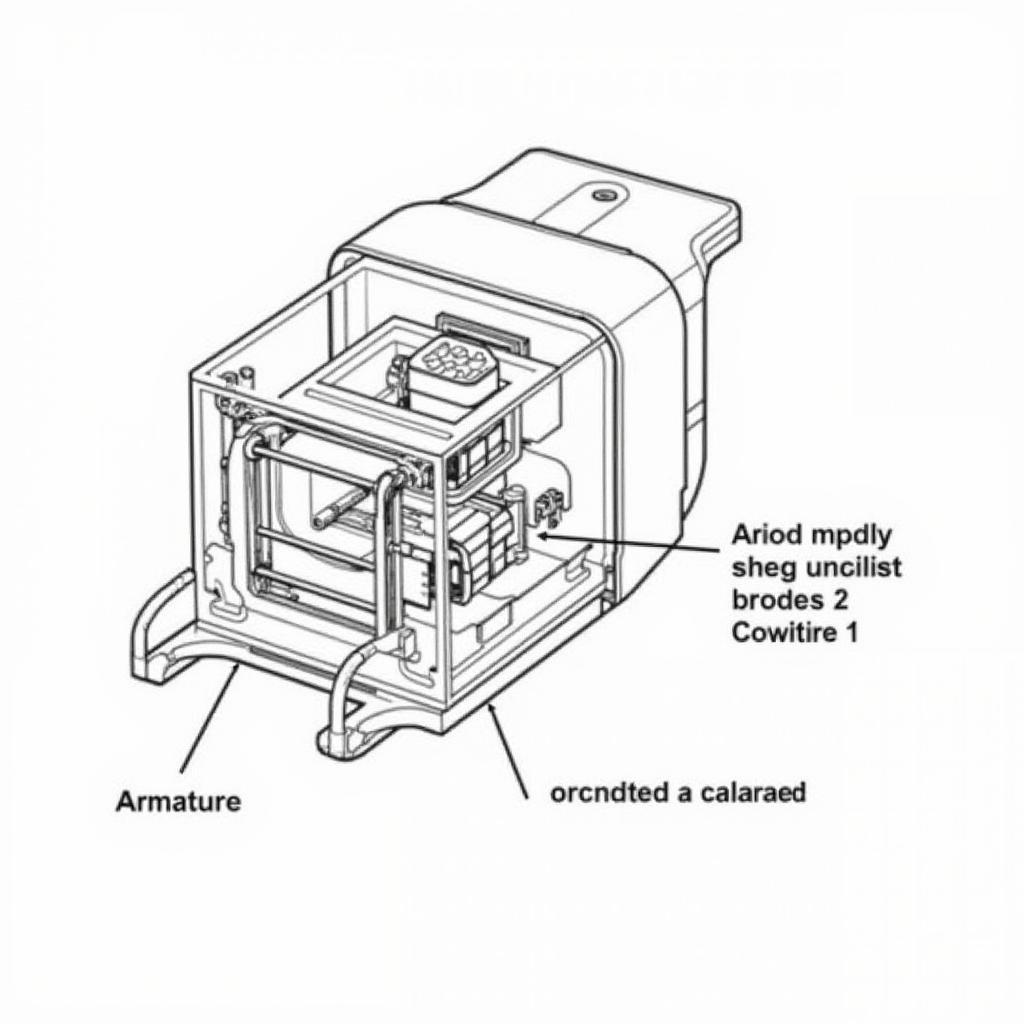Fixed And Variable Rate Car Allowances are two distinct approaches employers use to compensate employees for using their personal vehicles for business purposes. Choosing the right one significantly impacts both the employer’s budget and the employee’s take-home pay. This article will delve into the specifics of each allowance, comparing their advantages and disadvantages to help you make an informed decision.
What is a Fixed Rate Car Allowance?
A fixed rate car allowance provides a set monthly payment to employees who use their personal vehicles for work. This amount is predetermined and doesn’t fluctuate based on mileage or other expenses. It’s a simple, straightforward approach that’s easy to administer. However, it may not accurately reflect the actual costs incurred by employees, particularly those who travel extensively for work.
What is a Variable Rate Car Allowance?
A variable rate car allowance, on the other hand, reimburses employees based on their actual business mileage. This typically involves tracking mileage and applying a per-mile reimbursement rate set by the company or a governing body like the IRS. While more complex to administer, it ensures employees are fairly compensated for their vehicle-related expenses.
Fixed and Variable Rate Car Allowance: A Head-to-Head Comparison
Choosing between a fixed and variable rate car allowance requires careful consideration of several factors. Let’s explore the key differences:
-
Simplicity: Fixed rate allowances win in terms of simplicity. A set amount is paid each month, making payroll processing straightforward. Variable rate allowances require meticulous mileage tracking and calculations, increasing administrative overhead.
-
Fairness: Variable rate allowances are generally perceived as fairer, as they directly link reimbursement to actual business use. Employees who drive more for work are compensated accordingly. Fixed rate allowances can disadvantage high-mileage drivers, potentially leaving them out of pocket.
-
Budgeting: Fixed rate allowances offer predictable budgeting for employers. They know the exact cost each month, making financial planning easier. Variable rate allowances can fluctuate based on business activity and mileage, making budgeting more challenging.
-
Tax Implications: The tax implications of each allowance type can vary depending on local regulations. It’s crucial to consult with a tax professional to understand the specific tax treatment of each option in your jurisdiction.
Which Car Allowance is Right for You?
The optimal choice depends on your specific circumstances. For businesses with predictable mileage and a desire for simplified administration, a fixed rate allowance might be suitable. However, for businesses with fluctuating mileage or a strong emphasis on fair compensation, a variable rate allowance is likely the better option.
What are the tax benefits of a car allowance?
The tax benefits of a car allowance depend on whether it is classified as accountable or non-accountable. Accountable plans, where employees substantiate expenses, are often tax-free. Non-accountable plans are treated as taxable income.
How to calculate a variable rate car allowance?
A variable rate allowance is calculated by multiplying the business miles driven by a predetermined reimbursement rate. This rate might reflect IRS standards or a company’s own policy.
Expert Insights on Car Allowances
“A well-structured car allowance program can be a valuable tool for attracting and retaining employees,” says John Smith, Senior Automotive Consultant at Autotippro. “It’s vital to ensure the program is fair, transparent, and complies with all relevant regulations.”
“Companies need to carefully evaluate their business needs and employee travel patterns when selecting a car allowance program,” adds Jane Doe, Financial Analyst at Autotippro. “A thorough analysis can help optimize costs while ensuring fair compensation for employees.”
Conclusion
Choosing between fixed and variable rate car allowances requires careful consideration of various factors, including administrative simplicity, fairness to employees, budgeting predictability, and tax implications. Understanding these nuances is essential for making an informed decision that benefits both the employer and the employee. Connect with us at Autotippro for expert advice tailored to your specific needs. Call us at +1 (641) 206-8880 or visit our office at 500 N St Mary’s St, San Antonio, TX 78205, United States.
FAQ
- What is the difference between a car allowance and mileage reimbursement?
- Are fixed rate car allowances taxable?
- How does the IRS standard mileage rate work with a variable rate allowance?
- What are the best practices for tracking mileage for a variable rate allowance?
- Can a company switch from a fixed to a variable rate allowance?
- What are the legal requirements for car allowance programs?
- How can AutoTipPro help me choose the right car allowance program?





Leave a Reply